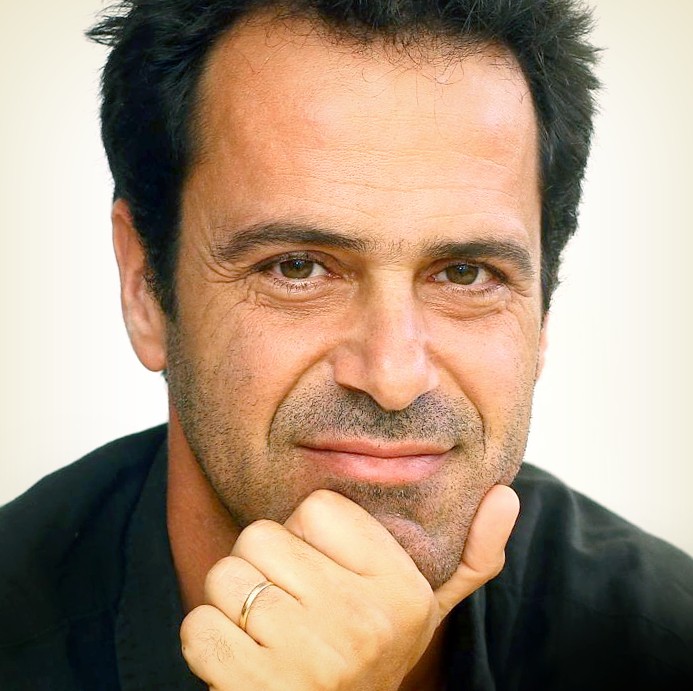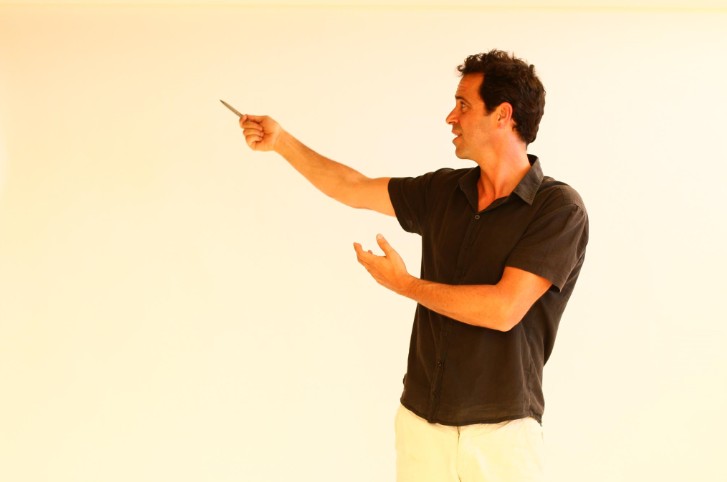Ilan Heitner: From Bagel Wisdom to Jewish Wisdom
After years of being single and publishing four bestsellers, author Ilan Heitner decided to make a change. He started a family, embraced Judaism, and shares how faith transformed his life.

Author Ilan Heitner, who has just released his fifth book, talks to "Israel Today" about his previous life and the transformation he underwent at age 37.
Asked by the interviewer, "Where is Ilan Heitner and what did you do to him?", he responds, "He is gone, and that's a good thing. Until the age of 37, I lived the single life in the most extreme way possible," he says. "This extremity led to a sort of flaw in my mind, and at some point, a massive sense of emptiness and suffering. There was a moment during my single and party life when I decided to change my life. I met Alona through mutual friends. Today, I am married and a father of four."
The journey of inner purification, which Alona joined, also led him to discover Jewish teachings. About eight years ago, while searching for answers, he ended up attending lectures on Judaism, and since then he has been studying Torah once a week at a kollel in Ramat Aviv.
 Ilan Heitner
Ilan Heitner"I felt that after 37 years of being single and zero serious relationships, I needed to learn how to manage such a relationship," Heitner shares. "Suddenly, I started asking myself, what is a woman? What is a relationship? What is love?" He continues to describe: "I needed to find answers to all these questions, and I found them in Judaism and generally in Jewish wisdom. Today, I feel like I love my wife even more than when we first met. I remember that when I went for the first time to a lecture on Judaism and relationships, there was a sigh of relief when I saw next to me many confused people coming to ask about maintaining relationships. It turns out that Judaism has entire books dedicated to relationships, love, and connections.
"It's no coincidence that Hashem told Abraham 'Whatever Sarah tells you, listen to her voice.' It's no accident that when Isaac entered the lives of Abraham and Sarah, the whole household laughed. Today, I understand that 'happy wife, happy life', and that you cannot live a whole and happy life if you have a frustrated wife at home. In Judaism, I learned about the meaning of giving and concession, and about the understanding that a couple is essentially one. If we argue in the morning and I have a newspaper interview, it's enough to tell her 'I need you now' for her to breathe, for me to breathe, and for us both to calm down.
"I realized that I don't give because I love, but that I love because I give. Why do we love our children? Because we give to them. And between us, sometimes we suffer from this giving. We get up in the middle of the night for them, we spend money on them, and we love them without limits - all from this place of giving.
"Through the lectures, I discovered the text of 'Eshet Chayil', the greatness of the Kiddush and sitting at the table with the children to praise their mother. We established a tradition where each child says nice things about their sibling that the sibling did during the week, and it elevates the whole family."

"How much can you run around on Shabbat following the blooming anemones or irises or squills? Everyone piles into the car and drives stressed from here to there, and 'call this friend' and 'don't tell that friend that the other friend is joining', and the kids want popsicles, and 'put a booster in the car' and 'buckle them up' and 'unbuckle them' and sit in traffic, and amusement parks and answering emails and phones. We felt our soul needed a day of rest without traveling, without moving, and without making any decisions."
In response to the interviewer's question, "What has Judaism brought into your lives?", he answers, "It has brought a lot of good. For me, the Torah is a kind of recipe book for better and more serene living. In my previous life, before my wife and children, I had all the freedom in the world to do whatever I wanted. But endless freedom is the farthest thing from freedom. I was lost."
Does Heitner miss those times? To this, he has a definitive answer: "I wasn't happy back then. It was a time of unruly living, but it didn't fill my needs. The problem with single life and debauchery is that after a short time of experiences you're no longer satisfied, and then you become more and more extreme, until you feel like an animal. That's not a feeling a person enjoys feeling," he concludes and says, "When does a person feel happiness and elevation? When he overcomes the animal instinct. Do you enjoy more staying in bed for another two hours, or getting up and going for a run? I managed to overcome the bad."

